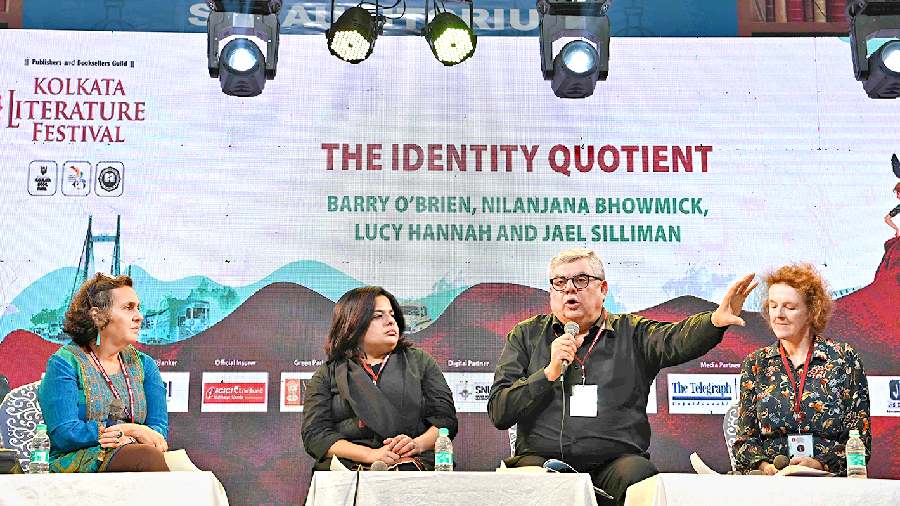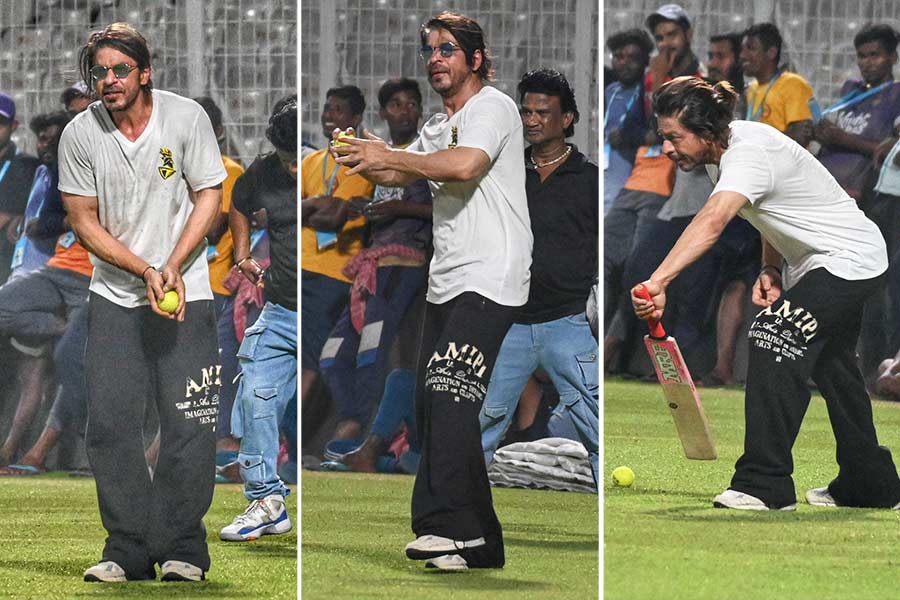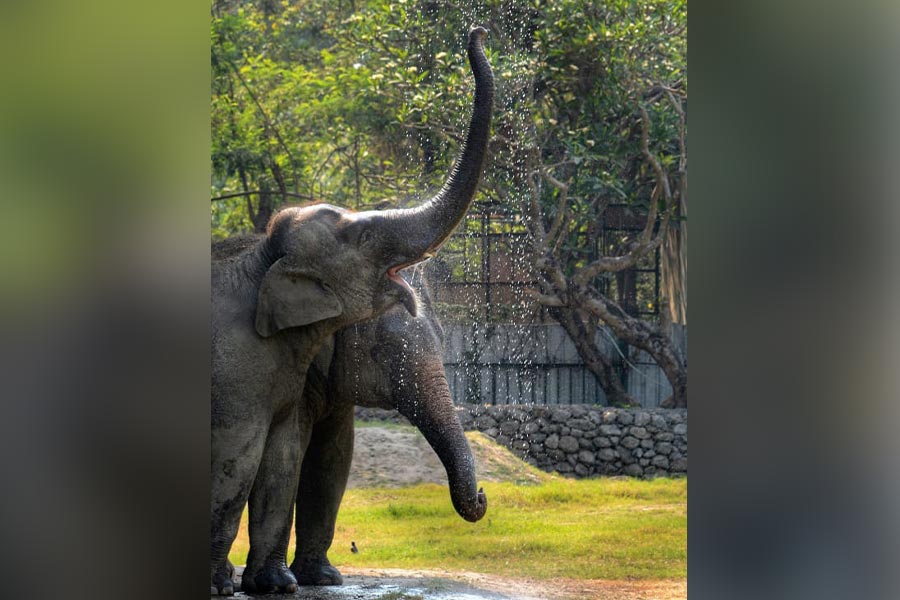The working woman of today’s India is indebted to the Anglo-Indian woman of yesterday, a leader of the community told a Kolkata audience on Thursday.
“Can you imagine a 100 years ago, when your grandmothers and great grandmothers did not usually step out of their homes.... In those days, the Anglo-Indian woman, wearing the nurse’s outfit, wearing her tennis skirts, wearing her dresses, went out even in the times of war, to sit as a telephone operator,” Barry O’Brien, quizmaster and educationist, said at a panel discussion on the opening day of the Kolkata Literature Festival, held in association with The Telegraph.
“It wasn’t easy, because everybody commented on them. They fought it with handbags full of confidence and dignity and went out and worked,” said O’Brien, quoting from his new book, The Anglo Indians: A Portrait of a Community, which tells the social, cultural and political history of the Anglo-Indians in India.
The panel discussion that followed the opening ceremony of the festival — a muchloved part of the Kolkata Book Fair — was titled “The Identity Quotient”.
Nilanjana Bhowmick, whose debut novel, Lies Our Mother Told Us: The Indian Woman’s Burden, came out last year, and Lucy Hannah, a literary creator, were the other panellists, who were in discussion with Jael Silliman, author, academic and women’s rights activist.
“So, all women in India, at least urban India, who want to work today, do a business today... I think all of you should clap for the Anglo-Indian woman who started it all and showed the way. She did not have to convince her family. In our community, right from Day One, the Anglo-Indian woman is equal.... When we have a party it is not mard and jenana (man and woman), it is all together,” said O’Brien.
The context of identity was laid out by Bhowmick, who said the modern Indian woman still cut a “very sorry figure”.
“She has come a long way. But she still has a long way to go. She is getting educated and going out to work, becoming a co-bread earner. But is the man becoming a co-caregiver? No,” she said.
Hannah, the other panellist, is the founder and director of Untold, which organises projects to work with local writers in areas of conflict.
This work has taken her to Afghanistan, Pakistan, Sri Lanka and South Sudan. Untold has brought out an anthology of short stories by Afghan women, titled My Pen is the Wing of a Bird.
The writings, in Pashto and Dari, have been translated into English.
Oppression and war that have stifled female expression for generations made the job extremely challenging. The return of the Taliban only increased the challenges.
Silliman asked Hannah about the “some of the most poignant issues” that the Afghan women have raised.
Hannah talked of “some of the more obvious accounts” like forced marriage or a woman bearing eight consecutive daughters with a husband desperate for a son. Then, she talked of one particular account.
It was a “highly fictionalised” piece about a girl whose mother had died and “whose father strapped a suicide vest to her and sent her off to a wedding hall in Kabul where she exploded herself”.
“The writer describes this very poignantly in that it could be a fictional piece. In a way it is almost too painful to write the truth,” said Hannah.
Books over bread
The night edition of the KLF was inaugurated by Governor C.V. Ananda Bose. “It gives me immense pleasure to be here for the inauguration of the Kolkata Literary Festival in a land where a book is more favoured than a bread,” Bose said.
Education minister Bratya Basu was present on the occasion.






